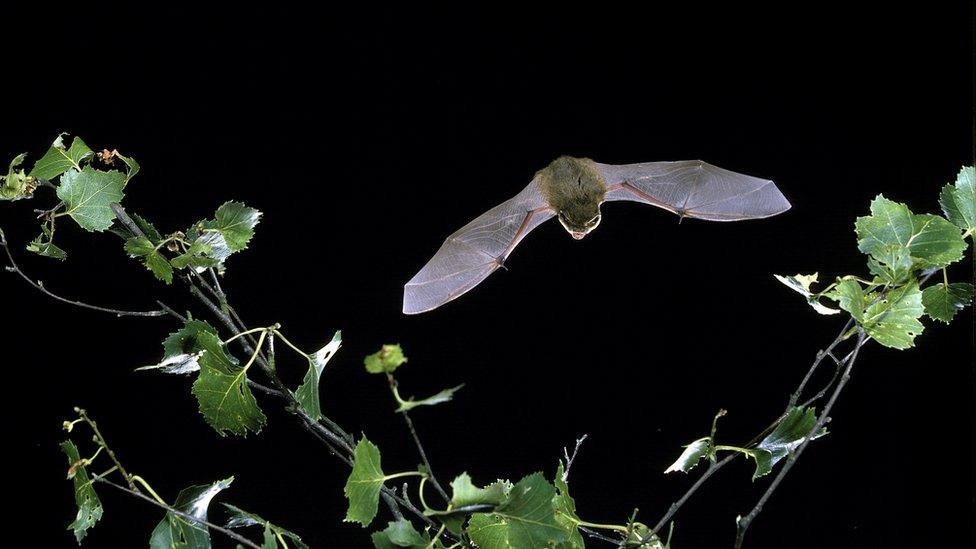Norfolk Western Link road planners criticise new bat guidance
- Published
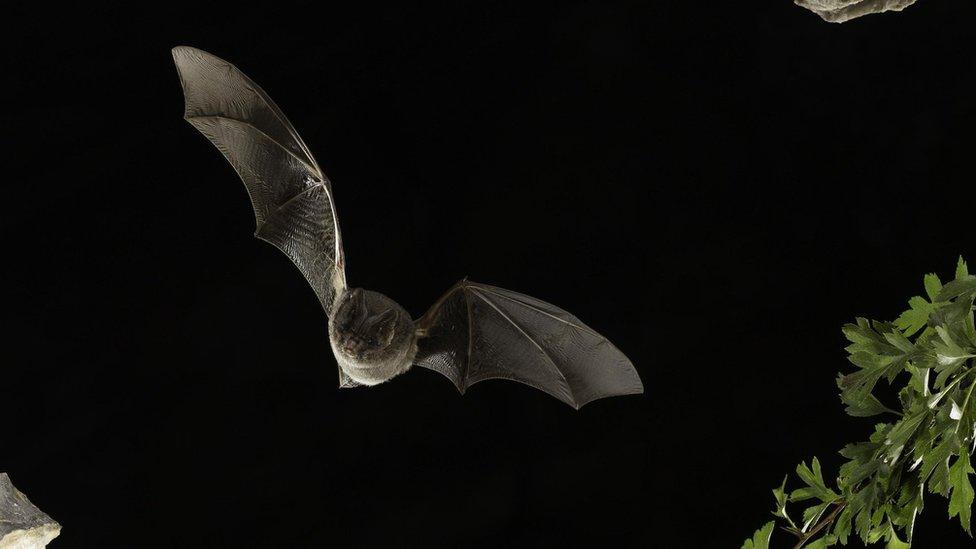
Natural England said the council would have to show the conservation status of the barbastelle bats "would not be negatively affected" by the Norwich Western Link road
New guidance to protect bats that has put a £247m road scheme in doubt could halt similar developments, a councillor said.
Natural England has issued a new report to protect rare barbastelle bats along the proposed route of the Norwich Western Link Road.
Norfolk County Council leader Kay Mason Billig said the report threatened to "block any infrastructure scheme".
Natural England said its role was to ensure the environment was "conserved".
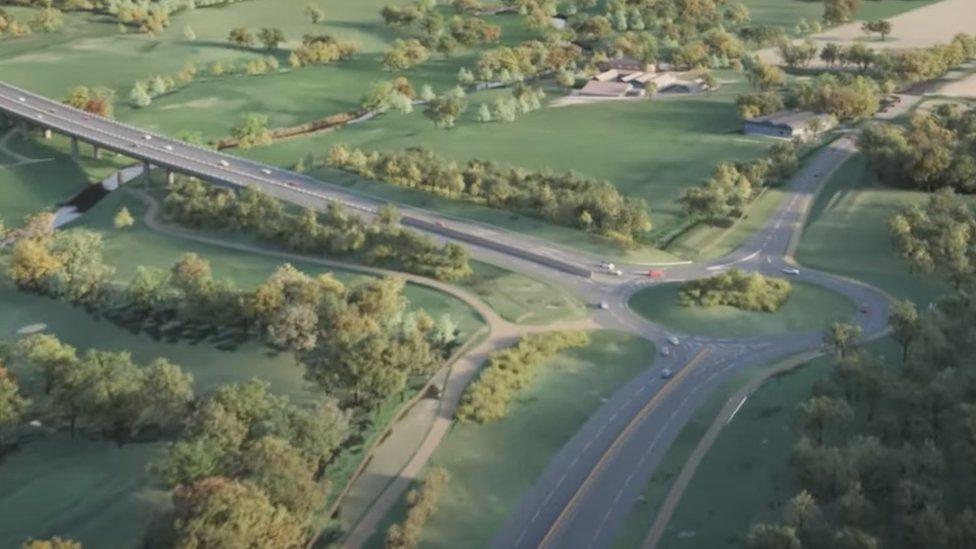
The £274m Norwich Western Link road is due to stretch 3.9 miles (6.3km) connecting the Broadland Northway at the A1067 with the A47 at Easton
Ms Mason Billig, a Conservative councillor, warned the new guidance could lead to greater problems for other developers.
"We saw this on nutrient neutrality, which was a disaster for the house-building industry and now we see this new advice, which threatens to block any infrastructure scheme in the whole of southern and central England and Wales," she said.
The council hopes to build a 3.9-mile dual carriageway to link the Broadland Northway to the A47 at Easton - completing the Northern Distributor Road around the north of Norwich.
To do this, it needs to get a bat mitigation licence from Natural England.
This is because there is a super colony of rare barbastelle bats in woodland in the path of the proposed road.
Officers at the council have decided the new guidance means it would be "virtually impossible" for them to be granted the licence.
Without this, the building work would be illegal.
Brian Watkins, leader of the Liberal Democrat group, said: "This is going to have a major impact on councils, not just this one, but around the country in being able to deliver key infrastructure projects."
What is nutrient neutrality?
Natural England rules mean 62 local authorities cannot allow new developments unless builders can prove their projects are "nutrient neutral".
This means it can prove it will not add extra nutrients to the surrounding water.
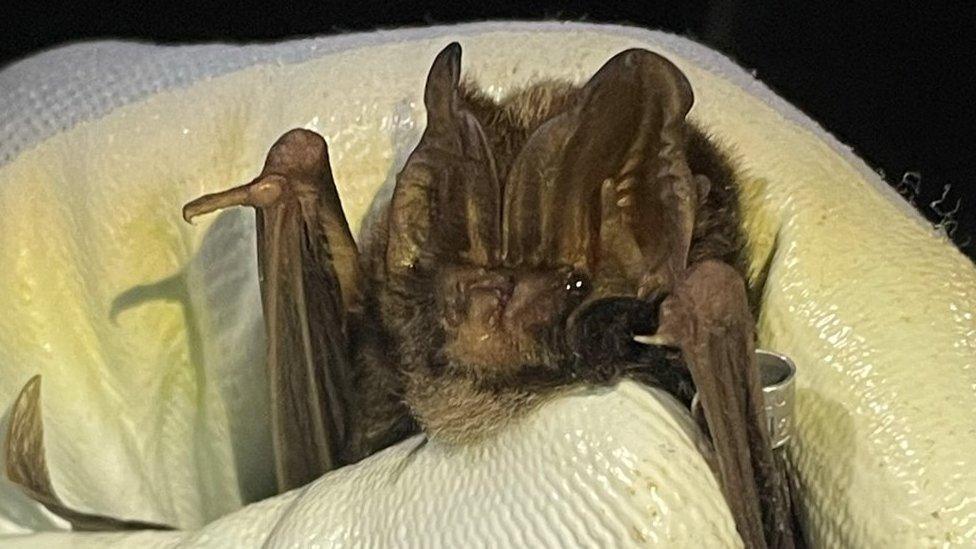
Barbastelle bats have formed a "super colony" in an area proposed for a major new road
Natural England has placed "favourable conservation status, external" on barbastelle bats, effective from this month.
This is the minimum threshold at which it is confident the species is thriving in England and is expected to continue to thrive sustainably in the future.
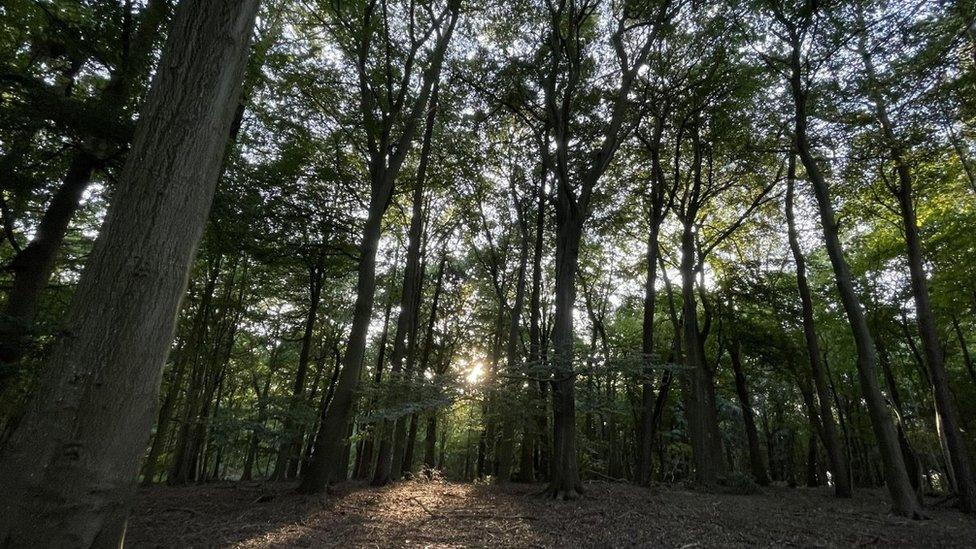
The woodlands, in the Ringland area in the Wensum Valley, north-west of Norwich, are home to numerous bat colonies
James Marshall, Natural England area manager, said there had been no change in the process they use to assess licence applications and its aim was always to ensure the countryside was "conserved, enhanced and managed for the benefit of people and wildlife".
"Norfolk County Council will need to demonstrate there is no satisfactory alternative to the scheme and that the conservation status of the bats would not be negatively affected by the road," he said.
Jamie Osborn from the Green group at County Hall said it was "fantastic news for the beautiful and unique Wensum Valley" and called on the Tories to "apologise".
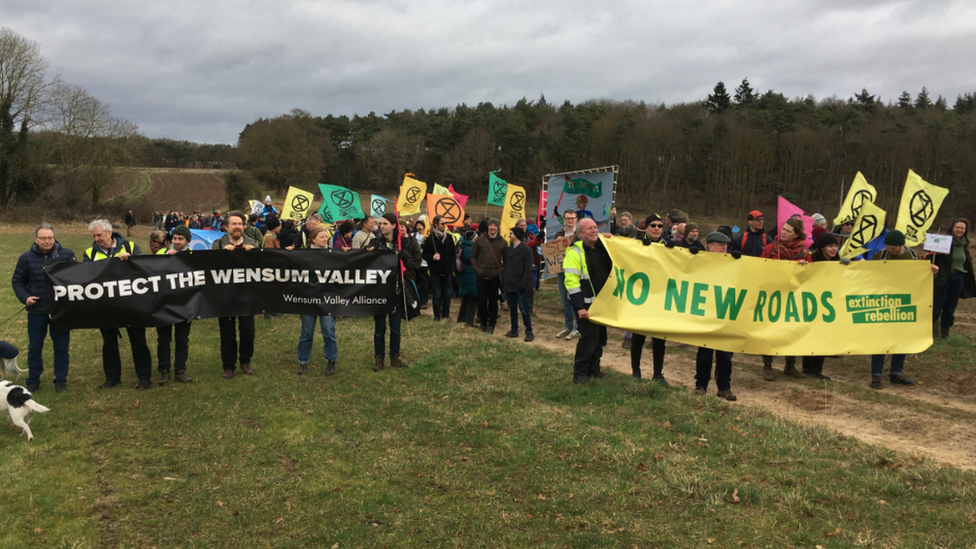
More than 300 people met in the Wensum Valley near Norwich to protest against a proposed new road
Dr Charlotte Packman is an expert on bats from Wild Wings Ecology which is based at the University of East Anglia in Norwich.
"This issue was flagged up many times to the council; they've ploughed on regardless with their plans," she said.
Steve Morphew, leader of the Labour group, said: "We're not surprised; what we know is they've wasted a lot of time and money on this and it's time they ditched it."
Clare Morton, chairperson of Weston Longville Parish Council, said the majority of residents, who live near the route of the proposed road, were in favour of it to ease rat-running and congestion through their village.
"We don't see anything on the horizon other than the new western link that will relieve this," she said.

Follow East of England news on Facebook, external, Instagram, external and Twitter, external. Got a story? Email eastofenglandnews@bbc.co.uk, external or WhatsApp us on 0800 169 1830
Related topics
- Published26 March 2024

- Published14 August 2023

- Published2 February 2022
